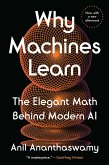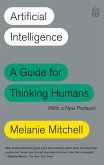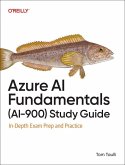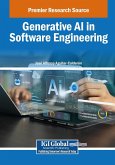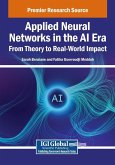As AI rapidly evolves from passive models to autonomous systems capable of setting goals, reasoning, and acting independently, engineers find themselves at the threshold of a new technological era. This book serves as a bridge connecting the world of traditional engineering to the emerging domain of Agentic AI. It is crafted for hands-on professionals who may not have formal training in AI but are eager to build the next generation of intelligent, goal-driven systems.
The journey begins with foundational concepts: what it truly means for a system to exhibit agency, how autonomy differs from automation, and why this distinction matters in practice. Early chapters lay down the necessary groundwork in machine learning and generative AI, allowing readers to appreciate the architecture that enables agentic behavior. From there, the book dives into system design patterns, prompting strategies, and the most influential tools shaping the agentic AI landscape from LangChain to CrewAI. Practical guidance is provided on engineering agents that are not only capable but also aligned, safe, and robust in dynamic environments. The third chapter shifts into applied engineering: readers are walked step-by-step through building their first AI agent, supported by real-world examples, feedback loop design, and deployment practices that mirror how modern autonomous systems are built.
By the final chapter, readers will not only understand agentic systems they will be ready to build, evaluate, and evolve them. The book closes by addressing the road ahead: open challenges in ethics, unpredictability, and system alignment, along with a roadmap for engineers who want to actively contribute to the field. Whether you're building automation today or preparing for the autonomy of tomorrow, Agentic AI for Engineers equips you with the knowledge, tools, and mindset to lead in the era of intelligent agents.
What You Will Learn
A practical introduction to Machine Learning and Generative AI, tailored for engineersConceptualize, design, and build autonomous AI agents from scratch even with a minimal AI background.The core principles of Agentic AI, including goals, environments, actions, and feedback loopsUnderstand different Agentic AI frameworks and their applications.Integrate agentic systems into real-world applications using hands-on coding examplesReview strategies for ensu
The journey begins with foundational concepts: what it truly means for a system to exhibit agency, how autonomy differs from automation, and why this distinction matters in practice. Early chapters lay down the necessary groundwork in machine learning and generative AI, allowing readers to appreciate the architecture that enables agentic behavior. From there, the book dives into system design patterns, prompting strategies, and the most influential tools shaping the agentic AI landscape from LangChain to CrewAI. Practical guidance is provided on engineering agents that are not only capable but also aligned, safe, and robust in dynamic environments. The third chapter shifts into applied engineering: readers are walked step-by-step through building their first AI agent, supported by real-world examples, feedback loop design, and deployment practices that mirror how modern autonomous systems are built.
By the final chapter, readers will not only understand agentic systems they will be ready to build, evaluate, and evolve them. The book closes by addressing the road ahead: open challenges in ethics, unpredictability, and system alignment, along with a roadmap for engineers who want to actively contribute to the field. Whether you're building automation today or preparing for the autonomy of tomorrow, Agentic AI for Engineers equips you with the knowledge, tools, and mindset to lead in the era of intelligent agents.
What You Will Learn
A practical introduction to Machine Learning and Generative AI, tailored for engineersConceptualize, design, and build autonomous AI agents from scratch even with a minimal AI background.The core principles of Agentic AI, including goals, environments, actions, and feedback loopsUnderstand different Agentic AI frameworks and their applications.Integrate agentic systems into real-world applications using hands-on coding examplesReview strategies for ensu


